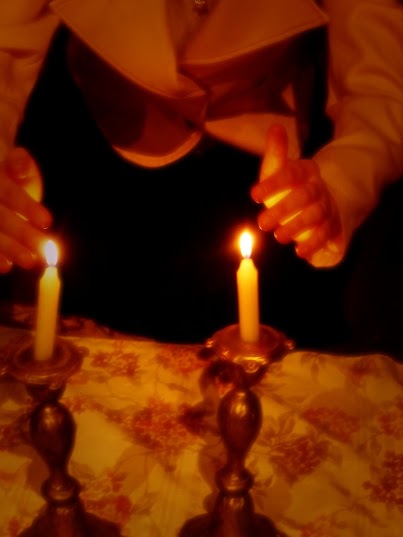 This article is in response to the piece published in Ha’Am on October 21st, 2012. I would like to make it clear that I respect the writer of the original article, and welcome all further discussion of this issue.
This article is in response to the piece published in Ha’Am on October 21st, 2012. I would like to make it clear that I respect the writer of the original article, and welcome all further discussion of this issue.
Religious (“Orthodox”) Judaism has long been accused of repressing women and, similarly, the Torah of misogyny. Since the early 1970s, feminist and anti-Torah writers have attacked what they perceive as chauvinistic, unequal, and old-fashioned practices and beliefs. However, the vast number of educated, intelligent, and modern women who believe in such practices and practice such beliefs would indicate that there is more than meets the untrained eye. To look into whether Orthodox Judaism truly believes that women are inferior to men, one must examine the roles that women have in Jewish law and the Tanach (i.e., Pentateuch, Prophets, and Hagiographa).
The Torah describes the creation of a female twice – the first time, stating (Gen. 1:27) And God created the man in His image – in God’s image He created him: male and female He created them. The second time, in Genesis 2:21-24, the creation of a woman, Eve, in detail, follows God’s pronouncement that (2:18, 20) it is not good for man to be alone; I shall make him a helpmate opposite him. Rashi, the foremost commentator on Tanach and the Talmud, explains these seemingly redundant accounts of Eve’s creation with the aggadic statement that originally, God created one androgynous being, subsequently splitting it into Adam and Eve. Eve was thereby created as fully one-half of humanity and an equal half of Adam.
Other portraits of women in Tanach include those of Sarah, of whom God told Abraham, “All that Sarah tells you, hearken to her voice” (Gen. 21:12); Rachel, whose generosity toward her sister is considered by the Talmudists to be greater than the actions of any of Judaism’s greatest leaders; Miriam the Prophet in whose merit God provided water to the Jews for the forty-year desert trek to Canaan; Deborah the Prophet, who led the Jews to victory against the forces of Sisera when no man could; and Queen Esther of Persia, whose actions saved the entire Jewish people from genocide, as retold in the Purim story. In the Talmud, the Jewish women of the Exodus from Egypt are lauded, “In the merit of righteous women, our fathers were redeemed from Egypt; in the merit of righteous women, we shall be redeemed [from the Diaspora].” Women are not denigrated; they are praised as the nation’s saviors.
Judaism is built around the home (not around the synagogue), where women are considered the master sculptors of the Jewish future, in partnership with their spouses. Women are even compared to God in their ability to give life, which men cannot. Moreover, as part of the daily prayers, women thank God “for making me according to His will.” To paraphrase one of my high school teachers, “that’s thanking God for making me perfect!”
In order to ensure that they are viewed with dignity, as human beings with mental and spiritual capabilities rather than as objects of physicality and sensuality, Orthodox women dress to minimize the physical body and to emphasize the face, which reflects one’s inner thoughts, emotions, and internal beauty. Such a way of dress and behavior expresses a refusal to be seen merely as a shallow, materialistic person who is focused entirely on externals, and a statement that I choose how the world will see me, and how I will be treated accordingly. Rather than repressing a woman, this practice is meant to free and honor her.
While there are, unfortunately, those who (out of ignorance) feel that zealous spirit can trump religious law and beliefs, they do not reflect the vast majority of Orthodox Jews who are dismayed and disgusted by unacceptable behavior toward anyone, including women.
On a personal note, as a Torah-observant young woman, I have never felt discriminated against for my gender, and one of the strangest pieces of information that I have ever learned is that, according to many, my fellow Orthodox women and I are discriminated against and held subservient. I encourage those who would argue otherwise to speak to an Orthodox/Chareidi woman (being Jewish, they would all love good, hard debate!) and get the inside scoop, because in Torah Judaism, the emotional and spiritual dimension of gender differences is not denied — it is redefined.
Further resources and discussions on women’s role in Judaism include the videos and articles produced by Jew in the City (jewinthecity.com; see, in particular “Mayim Bialik/Blossom Asks: Are Orthodox Jews Sexist?”), the in-depth series on Chasidic Jews by The Oprah Winfrey Show (“America’s Hidden Culture”), and chabad.org/women (see, in particular “The Role of Women in Judaism”). Hebrew-language readers may find the Yediot Aharonot article “?חרדופוביה • למה מותר לשנוא חרדים” (loosely, “Chareidophobia: Why Is It Okay to Hate Chareidim?”) further illuminating.
Thank you to Mrs. Allison Friedman, Mrs. Rachel Grossman, Mrs. Miriam Striks, Rabbi Jacob Rupp, Mrs. Sharona Kaplan, and Mr. Howard and Mrs. Gity Gluck for their suggestions and insights.


Looking forward to reading more. Great post. Will read on…
I really liked this post. I assume your information is actually truly excellent. 🙂 Yet I realized that the article title a little uninteresting! I think you truly may improve on the headline by referencing just how the best bloggers execute this. It’s a shame that you really don’t have enough exposure merely due to your post titles. Additionally, why are there plenty of spammers commenting here?